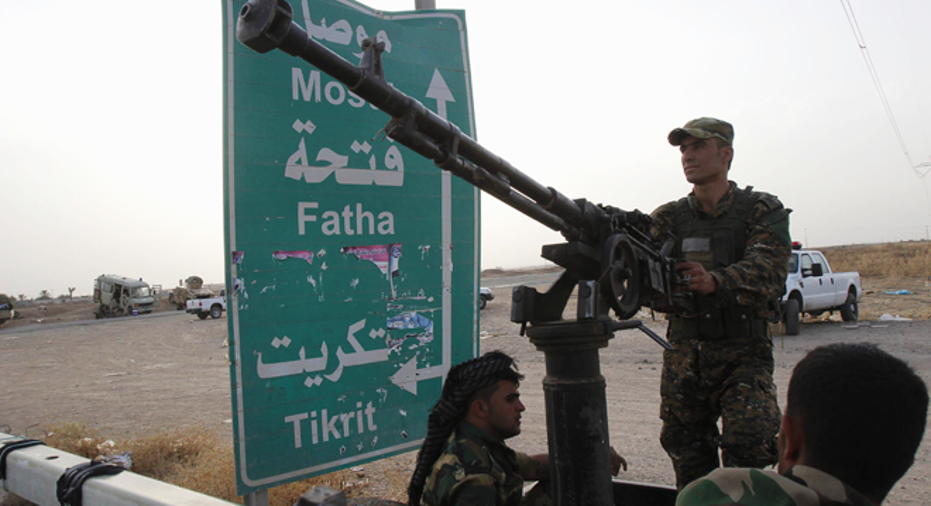Lessons from Iraq that Might Be Coming Too Late

In business, impressions count. An incoming CEO who promises to turn things around and doesn’t usually doesn’t stay long in the job. In politics, it isn’t much different. The President who promises action and delivers only words will soon be judged not on the delivery of those words, but whether he delivered on those words.
It’s the latter issue that is bedeviling President Obama right now. But I think it’s more a compilation of mismatched actions that’s doing something more. Collectively, they have sapped his credibility with the public, and now, the world.
The explosion in Iraq and insurgents’ sudden and rapid rise isn’t his entire fault. The Iraqi government has been a sham from the beginning, and an anathema to the moderating inclusive administration both President Bush and President Obama hoped the Nori al-Maliki regime would be.
But this President’s failed follow-through on a number of foreign policy fronts sped up a lot of these developments. Much of it goes back to what Sen. John McCain calls the administration’s infamous line in the sand threat to Syria. Once the President challenged Bashar al-Assad over the use of chemical weapons against his people, and that proof of doing so would be a real game-changer, one could have reasonably assumed that once we got that proof, the game “would” change. It didn’t.
Republicans say the President did something even worse. He punted. Rather than take immediate and swift action against Assad, the President left it to Congress to consider – war by delegation, as McCain put it.
Democrats claim the President was merely calling Republicans’ bluff – that if they were so hot to go war in Syria, they’d put their votes where their convictions were, and do so. But in reality, the process became much more convoluted. It soon stretched to the United Nations, which started reframing the debate – beyond whether Assad “used” chemical weapons against his people, to whether he was “still using” chemical weapons against his people. It was like devoid of U.S. leadership, the whole western world was looking for an easy out.
Assad could see the international dithering for what it was, and he continued doing what he had always done – tightening his tyrannical grip in Syria – and marshalling the very insurgent forces he has now unleashed on Iraq. These are the consequences of measured responses that barely match far stronger words.
As any bedeviled CEO will tell you, not doing what you say invariably hurts you a lot more than clumsily executing what you say. At least when you clumsily try, you’re trying, after all. When you don’t even give your own words justice, there’s no justice for all, and no accountability, period. Further, chief executives who try to boost their company’s sales or profits by either selling divisions or cutting workers, buy themselves time, even if during that time, their fixes haven’t worked. At least they’re working at it – or giving the appearance of working at it. The difference is crucial for the company. This President appreciating that difference is even more crucial…for the world.
CEOs get dumped not so much for failing but not doing the things they said they were going to do to avoid failing. McCain says President Obama should fire his entire foreign policy team for essentially doing both – and not seeing the consequences of not even trying. But it might be too late now in Iraq.
In fact, a wholesale firing of the President’s foreign policy advisers would be counterproductive at this stage. Rightly or wrongly, the world has taken measure of the President’s words and concluded they are merely words. No different from promising you can keep your doctor, when you can’t….or green energy creating thousands of jobs, when it hasn’t. Eventually those who hear you stop believing in you.
It’s why corporate boards turn on chief executives who hand-picked them. They know angry shareholders want to be done with all of them. When trust is broken, other things have a habit of breaking.
And it’s very hard to make things right. Calamities tend to cascade. They tend to reinforce the impression they are somehow all part of a pattern. Jimmy Carter’s failed Iranian hostage rescue mission back in 1980 cemented a view that his administration couldn’t do anything right. It wasn’t Carter’s fault helicopters crashed in a Mideast desert, but it fueled gnawing doubts about his ability to deliver on his talk.
Barack Obama is at that crisis point – and much is of his own doing. He set the stage for progress in Iraq, and now we see anything but in Iraq. It’s not his fault the country erupted into civil war. It is his fault that he all but promised we’d never see civil war, because his measured troop drawdown would avoid civil war. It hasn’t. Not even close. As one military analyst put it to me on Fox News, if you’re going to make a bold comment, make sure the conviction behind it is just as bold, and just as clear. And be prepared to act on that comment if that conviction is ever in doubt.
Or suffer the consequences because you didn’t do a damn thing about it.



















